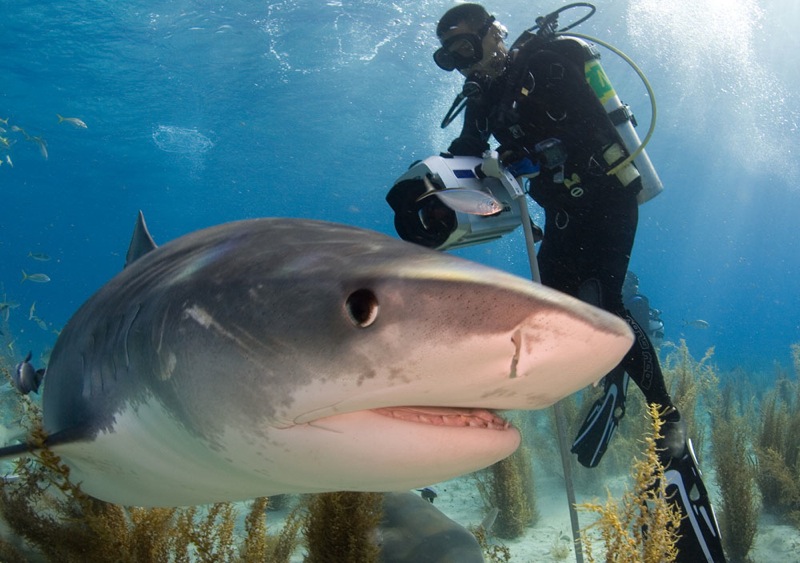As long as people and sharks continue to use the same spaces, there’s a risk of attacks and injuries. Whose rights should be prioritised?
Two British backpackers have become the latest people to be severely injured by sharks in Australian waters. The area they were attacked in - the Whitsundays Islands - is a popular tourist destination and has been the site of two other shark attacks in the last year. In response, the local government said it would put a bunch of new shark traps around the area. Such traps have been widely criticised as being inhumane (sharks caught in them are often shot or left to die, as releasing them is dangerous work) and ineffective.
There are plenty of other shark-deterring options, including nets, culls, air surveillance and personal sonar devices for swimmers and surfers. But all have drawbacks: they harm marine life and/or are expensive. So what if the government instead decided to do… nothing? Some conservationists think that as long as people are informed that shark encounters are a possibility they should be left to take the risk if they want to go swimming, surfing or snorkelling. There are several advantages to this policy: sharks species would be protected and government could spend their anti-shark budget on other things, like schools and hospitals.
But considering the price of this do-nothing policy will be human lives or limbs, it strikes many people as unconscionably callous. It’s worth remembering, however, that we make these sort of risk calculations every day. We drive cars despite knowing about traffic accidents. We supersize our fries even though we know that fatty foods contribute to a whole host of deadly health problems. And shark attacks - particularly fatal ones - are exceedingly rare. Even in Australia you’re five times more likely to drown in the bathtub than be killed by a shark. There is an argument that it would be fairer for governments to concentrate the time and resources they are currently spending on shark deterrence to improving the safety of things that have higher annual death tolls.
This logic, however, ignores how most humans actually calculate risk. We feel more fear towards things, like shark attacks, that are unfamiliar or “mythologized” (by, say, having a famous horror-movie franchise based around them) regardless of how frequently they happen. And that fear makes us far more risk-adverse than we should be. Case in point: tourism in the Whitsundays has dropped six percent since the first shark attack in the area. That will have financial repercussions for locals whose businesses and jobs rely on tourism. And it’s this irrational knock-on effect that might makes government investment in preventing shark attacks seem good value for money after all.
Read our explainer on: economic rationality.

